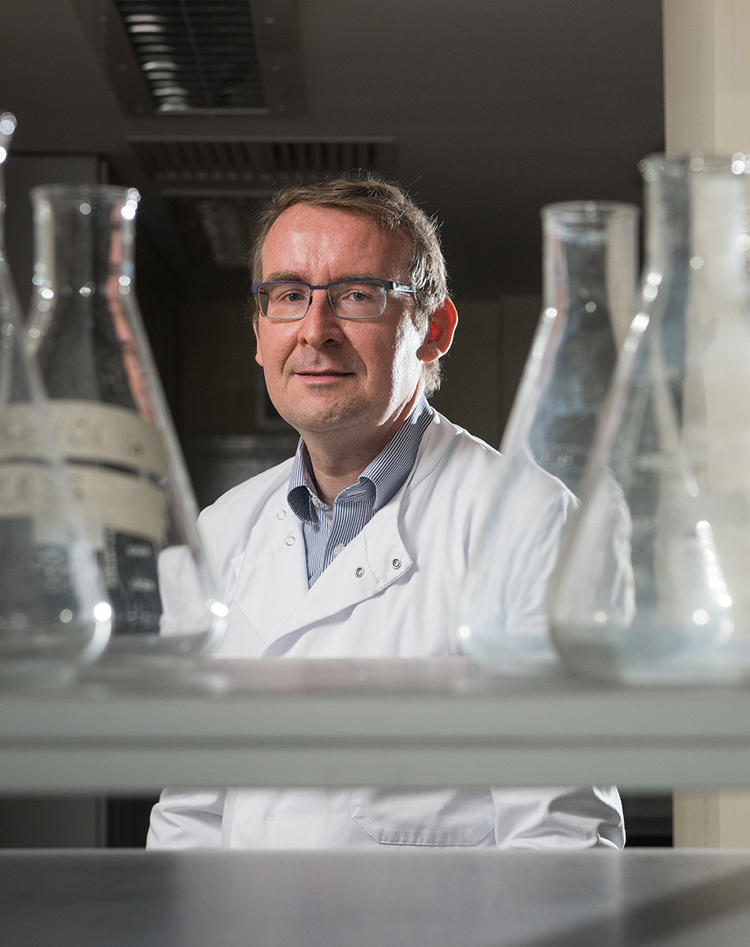Ian Mills
Ian Mills studied Biochemistry at the University of Oxford, and went on to earn his PhD in Molecular and Cellular Physiology at the University of Liverpool in 2000. He is currently Professor of Translational Prostate Cancer Biology at Queen’s University of Belfast and John Black Associate Professor of Prostate Cancer at the University of Oxford. In addition he is a Visiting Scientist at Cambridge Cancer Research UK Institute, an Honorary Visiting Fellow in the Department of Oncology at the University of Cambridge and an Affiliate Member of the Centre for Molecular Medicine Norway (NCMM).
Hovedinnhold
After three years undertaking a postdoctoral research association in the MRC Laboratory of Molecular Biology in Cambridge working with membrane curvature and sensing associated with clathrin coated vesicle formation, Professor Mills teamed up with Professor David Neal to establish an Uro-Oncology research laboratory in Cambridge. In 2010 he moved to Norway as one of the initial group leader recruitments into the newly formed Centre for Molecular Medicine Norway (NCMM) and continued his work on prostate cancer focusing on the impact of transcriptional and chromatin dysregulation on metabolism and stress response pathways. In 2015, he moved to the Centre for Cancer Research and Cell Biology (CCRCB) at Queen’s University of Belfast and worked there on understanding the interplay between these biologies and radiotherapy response, as well as on the development of new pre-clinical models of prostate cancer. In 2018, he became Professor of Translational Prostate Cancer Biology in Belfast and embarked on establishing a new research team within the Nuffield Department of Surgical Sciences, University of Oxford, having been appointed John Black Associate Professor of Prostate Cancer. In this new role he is working to understand how these biological processes synergize with treatment stress to influence the evolution of prostate cancers, investigating this alongside complementary research teams led by computational biologists, surgical clinician scientists, pathologists and bone biologists. He retains a range of collaborations with groups in Norway, with a number of former group members now establishing independent academic careers there. He hopes to use his affiliation with CCBIO to further catalyze collaborative projects across Norway and between Norway and the UK.
